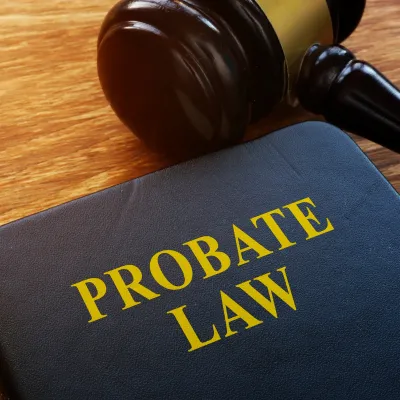Probate is an important legal process that involves administering a deceased person’s estate and distributing their assets according to their wishes or applicable laws.
In California, probate laws govern the transfer of property after death.
Understanding which assets are subject to probate is crucial for estate planning and ensuring a smooth transition of assets.
In this blog article by ProCurian, we will look at the assets that are subject to probate in California and examine ways to avoid probate wherever feasible.
Understanding Probate in California

Probate in California refers to the legal process of settling the estate of a deceased person.
It involves:
- validating the decedent’s will,
- inventorying their assets,
- paying off any debts or taxes, and
- distributing the remaining assets to the beneficiaries or heirs.
The basic purposes of probate are to guarantee proper asset distribution, preserve creditors’ interests and offer a clear framework for estate management.
The executor or administrator, heirs, beneficiaries and the probate court are all involved in the probate procedure.
Also See: What Assets Cannot Be Placed in a Trust?
Assets Subject to Probate
1. Real estate
- Residential properties,
- commercial properties and
- vacant land owned solely by the deceased person are generally subject to probate.
However, certain exceptions exist such as properties held in joint tenancy or those with designated beneficiaries.
2. Personal property
- Bank accounts,
- investments,
- vehicles, boats,
- jewelry and
- other valuable assets owned solely by the deceased person are typically subject to probate.
Exceptions include assets held in joint tenancy, payable-on-death (POD) accounts or transfer-on-death (TOD) securities.
3. Business interests
If the dead individual had a
- sole proprietorship,
- partnership,
- corporation, or
- limited liability company (LLC), their business interests may be probated.
It is important to note that business entities may have specific provisions in place to facilitate the smooth transfer of ownership upon death.
4. Intellectual property rights
Intellectual property assets such as:
- copyrights,
- trademarks and
- patents owned solely by the deceased person are generally subject to probate unless other arrangements such as a living trust, have been made.
5. Life insurance policies
Life insurance policies where the deceased person is the policyholder and the estate is the beneficiary may go through probate.
However, if the policy has designated beneficiaries such as a spouse or child, it typically does not go through probate.
6. Retirement accounts
Retirement funds such as 401(k)s and IRAs that do not have specified beneficiaries or where the estate is named as the beneficiary will almost certainly be subject to probate.
Assets That Are Exempt from Probate
1. Assets Held in Trust
Assets placed in a revocable living trust are not subject to probate. They pass directly to the named beneficiaries according to the trust’s terms.
2. Assets With Designated Beneficiaries
Assets that have designated beneficiaries, such as life insurance policies, retirement accounts and payable-on-death bank accounts, bypass probate and go directly to the beneficiaries.
3. Jointly Owned Assets
Assets held in joint tenancy with the right of survivorship automatically pass to the surviving joint owner and avoid probate.
When is probate required in California?
Probate is generally required in California when a deceased person’s estate meets certain criteria. These criteria include:
The value of the deceased person’s estate is over $184,500 after April 1, 2022. This value threshold is subject to change, so it’s advisable to check for any updates if you are dealing with a more current situation.
The deceased person owned real estate in their sole name, regardless of its value.
The deceased person owned assets worth over $184,500 in their sole name, excluding certain types of assets such as:
- those held in a living trust,
- assets held jointly with right of survivorship,
- assets with designated beneficiaries (e.g., life insurance policies, retirement accounts) and
- assets that pass by operation of law (e.g., community property with right of survivorship).
Strategies to Avoid Probate in California
To avoid probate, individuals can employ various strategies, including:
1. Establishing a living trust – A revocable living trust allows assets to be transferred into the trust’s ownership during the individual’s lifetime, effectively removing them from probate and ensuring a smoother distribution process.
2. Utilizing joint tenancy – By titling assets in joint tenancy with right of survivorship, they automatically pass to the surviving joint owner outside of probate.
3. Designating beneficiaries – Assets such as life insurance policies, retirement accounts, and payable-on-death (POD) or transfer-on-death (TOD) accounts can have designated beneficiaries, ensuring they are directly transferred to the intended recipients upon the owner’s death.
4. Gifting assets during lifetime – Transferring assets as gifts to beneficiaries during the owner’s lifetime can help avoid probate.
5. Making payable-on-death (POD) and transfer-on-death (TOD) accounts – Setting up payable-on-death (POD) or transfer-on-death (TOD) designations on bank accounts or investment accounts allows assets to be quickly transferred to the designated beneficiaries, skipping probate.
FAQs
When is probate required in California after death?
Probate is typically required in California after death when the deceased person’s assets exceed $184,500, excluding certain exemptions like joint tenancy or living trusts.
What happens if you don’t file probate in California?
If you don’t file probate in California, the estate’s assets may not be distributed according to the law and creditors may not be properly notified or paid.
Is there a time limit to file probate in California?
Yes, in California, the general time limit to file probate is within one year from the date of the decedent’s death.
Do you need probate if there is a will in California?
Yes, in California, probate is generally required even if there is a will, unless the estate meets certain exceptions or qualifies for simplified probate procedures.
What is the average probate fee in California?
The average probate fee in California can vary widely but typically ranges from 2% to 4% of the total estate value.
-4% on the first $100,000,
-3% on the next $100,000
-2% on the next $800,000.
How do I avoid probate fees in California?
To avoid probate fees in California, you can utilize estate planning tools like living trusts, joint ownership, payable-on-death designations and gifting assets during your lifetime. Consult an attorney for guidance.
What is the current probate limit in California?
According to the California Probate Code, probate estates valued $166,250 or less must be probated for decedents who died before April 1, 2022. The threshold amount is $184,500 for deaths occurring on or after April 1, 2022.
Final Words
Understanding which assets are subject to probate in California is vital for effective estate planning.
By familiarizing yourself with the probate process and identifying the assets that typically go through probate, you can make:
- informed decisions to protect your estate,
- minimize complexities and
- streamline the distribution of your assets.
Seeking professional guidance from an estate planning attorney can provide invaluable assistance in developing a comprehensive estate plan that meets your specific needs and goals.
By taking proactive steps, you can ensure a smoother transition of your assets to your intended beneficiaries while minimizing the burdens associated with probate.







